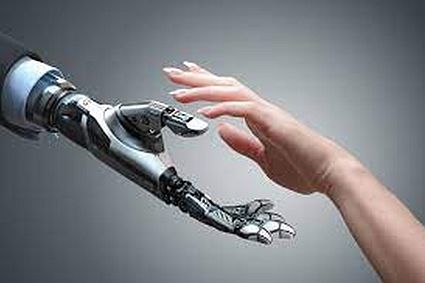As sellers, we are obsessed with efficiency. It’s no surprise, we have more demands on our time than we have time to fulfill those demands. We constantly seek better ways to accomplish more. For decades, technology continues to offer ways to improve our efficiency (and every once in a while, our effectiveness–but that’s a separate post).
In addition to technology, we revise and redesign our processes to make us more efficient. Role specialization helps us more efficiently manage our relationships with customers. We have SDRs/BDRs focused on prospecting. AEs manage qualified deals, Customer Service manages the relationships after we have closed a deal. Ant there are all sorts of other experts that may bring certain knowledge or capabilities to help in our work with customers.
There’s a problem, however. Too often, the targets of our “efficient outreach” are human beings. And human interaction is not designed for efficiency.
Interactions between people–whether they are our team mates, people in our organizations, or our customers are not designed for efficiency. Each of us brings a lot or “baggage” to each interaction. Much may be unrelated to the conversation or what we are trying to accomplish together. For example, this morning, I was having trouble with a tool we depend on. That experience put me on edge for a couple of other meetings in the morning. My “pissed offness” in these meetings had nothing to do with the meeting, but my distraction from the problem I was experiencing. I wasn’t really paying attention, I wasn’t present. And this impacted the quality of the interaction in the meeting.
But I and the people I was meeting with had to adjust how we conducted the meeting because of the baggage I brought to it.
There are all sorts of things that impact our interactions with others. Some can be understood and dealt with “rationally.” Many are not, like my distraction in my morning meetings. But they impact our ability to connect effectively with other human beings.
Human interaction is infinitely messy. We have biases, opinions, beliefs, and values. Some of these are well founded in facts and data, most are not. We have different experiences we bring into our interactions–even though those experiences may be totally unrelated to the interaction. We change our minds and our positions constantly. While we seek to be rational, we are more often somewhat less than rational. We have goals, ambitions, dreams. We have fears, uncertainties. We have emotions and are emotional. We crave relationship and interaction. We are distracted and distracting. And we are constantly changing, wandering, trying to find and reinvent ourselves, our relationships, and each other.
We are, at times, creative, curious. intuitive, adaptive. And at other times, we are stuck, ignorant, oblivious, and resistant. We leverage verbal and non-verbal means of communicating. We get frustrated at the irrationality of others, yet sometimes overlook our own irrational responses.
We treasure the ability to connect and engage with others, it’s core to our mental health and well being. Deprived or human interaction, we suffer, we experience loneliness.
We get frustrated, often, in dealing with other human beings. They slow us down, they have different agendas and goals. We want to have people that agree with us, that do what we want them to do, that move in the same direction and at the same speed as us. Yet we then recognize, that to others, we present the same difficulties and challenges when they deal with us.
And the ability to bridge this messiness is uniquely human. The ability to listen, to care, to empathize, to understand (not necessarily agreeing) helps us have meaningful interactions. The messiness of human interactions, is what bring both joy and frustration in these interchanges.
It is what makes us human.
As much as we may wish, it is never “just about the facts.”
The more we seek to make our interactions efficient, the more we will run up against the messiness of being human. We seek to replace human interaction with technology interacting with humans. Yet, as efficient as those technologies might be–they fail to connect in ways that are meaningful to those they target. And, perhaps, the more we try to design these for efficiency, the more inefficient they become. We can send thousands of emails, hundreds of dials. We leverage bots to drive more interaction.
Likewise, from the buyer side, we leverage technology, digital buying processes, everything we can to avoid human interaction. Yet we fail, we are afraid. We suffer FOMU and FOFU. And if we stumble on a decision, we experience regret (FOMU/FOFU after the fact).
Technology may help us in having high impact interactions with others. It may help us learn and understand. It may provide us insight and ideas, but, at least for the time being, it doesn’t make us human interaction less messy.
Human interaction, despite all it’s inefficiency and messiness, is what brings joy, connection, and meaning to our lives.
Perhaps, we might focus less on efficiency, but more on creating meaning, impact, and value in our human interactions.

Leave a Reply